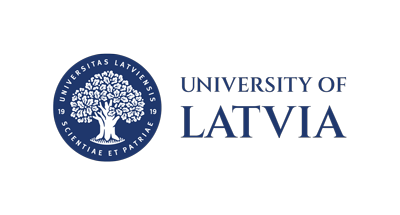Intelligence analysis and cognitive biases: an illustrative case study
DOI:
https://doi.org/10.37380/jisib.v4i2.96Abstract
This case study is foremost an educational tool. It involves two European and Asian multinational tires manufacturer for OTR, Off the Road, or “off road” and a problem of price competition. It shows how an initial intelligence effort is led astray. Instead the solution is a combination of approaches, better known as Competitive Intelligence. It is built on the external vision of the company craft, the use of all information sources characteristics of an intelligence field dedicated to the business world. It is not a new discipline but a trans-disciplinary approach for information exploitation which is using elements from financial analysis, SWOT (strengths, weaknesses, opportunities, threats) matrixes, and value chain analysis. In the above case, the company Eurotires used mostly the following sources: internet, scientific and patent databases; public administrative sources; customers interviews, industrial experts (manufacturing and distribution), and marketing analysis.
References
Ackerman, M.S. (ed) (2003). Sharing expertise beyond knowledge management. Cambridge, Massachusetts: MIT Press. DOI: https://doi.org/10.7551/mitpress/6208.001.0001
Black’s Law Dictionary, 2nd online edition, accessed 15 March 2014 from http://thelawdictionary.org/cognitive-bias/.
Cognitive bias – see http://www.princeton.edu/~achaney/tmve/wiki100k/docs/Cognitive_bias.html
DuCharme, W.M. (1970) "Response bias explanation of conservative human inference". Journal of Experimental Psychology. DOI: https://doi.org/10.1037/h0029546
Goyal, N., Leshed, G., Cosley, D. and Fussell, S.R.. (2014). “Effects of Implicit Sharing in Collaborative Analysis” - Department of Information Science, Department of Communication, Cornell University. DOI: https://doi.org/10.1145/2556288.2557229
Fehringer, D. and Hohhof, B. (2006). Competitive Intelligence Ethics: Navigating the Gray Zone. Society of Competitive Intelligence Professionals.
Fischoff, B. and Chauvin, C. (eds.) (2011). Intelligence Analysis: Behavioral and Social Scientific Foundations. Washington, DC: Committee on Behavioral and Social Science Research to Improve Intelligence Analysis for National Security, Board on Behavioral, Cognitive, and Sensory Sciences, Division of Behavioral and Social Sciences and Education, National Research Council.
Herring, J.P. (2005). "Defining Your Intelligence Requirements" - accessed 16 March 2014 at http://units.sla.org/division/dci/Conf_Presentations/2005/Defining_Your_Intelligence_Requirements.pdf.
Heuer, Jr. Richard J. (1999). "Psychology of Intelligence Analysis" (Chapter 9: What Are Cognitive Biases?). Washington, DC: Center for the Study of Intelligence.
Iverson, G., Brooks, B. and Holdnack, J. (2008). "Misdiagnosis of Cognitive Impairment in Forensic Neuropsychology" In R.L. Heilbronner, Neuropsychology in the Courtroom: Expert Analysis of Reports and Testimony. New York: Guilford Press.
Keysar, B., & S.L. Hayakawa (2012). “The Foreign-Language Effect: Thinking in a Foreign Tongue Reduces Decision Biases”. Psychological Science. DOI: https://doi.org/10.1037/e502412013-138
Margit, M.F. and S. Grosjean (2012). "Confirmation Bias". In Pohl, R. F. Cognitive Illusions: A Handbook on Fallacies and Biases in Thinking, Judgment and Memory. New York: Psychology Press.
Pronin, E., and Kugler, M. (July 2007). "Valuing thoughts, ignoring behavior: The introspection illusion as a source of the bias blind spot". Journal of Experimental Social Psychology. DOI: https://doi.org/10.1016/j.jesp.2006.05.011
Sanna, L.J., Schwarz, N., Stocker, S.L. (2002). "When debiasing backfires: Accessible content and accessibility experiences in debiasing hindsight." Journal of Experimental Psychology: Learning, Memory, and Cognition. DOI: https://doi.org/10.1037//0278-7393.28.3.497
The Skeptic’s Dictionary. "The experimenter effect". Accessed 16 March 2014 from http://skepdic.com/experimentereffect.html.
Thomas, A. K. and Millar, P. R. (2011). "Reducing the Framing Effect in Older and Younger Adults by Encouraging Analytic Processing". DOI: https://doi.org/10.1093/geronb/gbr076
Tolk, A. (2012). "Ontology, Epistemology, and Teleology for Modeling and Simulation: Philosophical Foundations for Intelligent M&S Applications". New York: Springer. DOI: https://doi.org/10.1007/978-3-642-31140-6
Tversky, A. and D. Kahneman (1974). "Judgment under Uncertainty: Heuristics and Biases - Illusory correlation: inaccurately perceiving a relationship between two unrelated events” (September 27). Science (American Association for the Advancement of Science). DOI: https://doi.org/10.1126/science.185.4157.1124
Watkins, M. (2013). "What Is Organizational Culture? And Why Should We Care?" Accessed16 March 2014 from http://blogs.hbr.org/2013/05/what-is-organizational-culture/
Wheaton, Kristan. (2013). «Reduce Bias in Analysis by Using a Second Language« retrieved 13 March 2014 from - http://www.sourcesandmethods.blogspot.fr/2013/11/reduce-bias-in-analysis-by-using-second.html
Published
Issue
Section
License
Copyright (c) 2014 Journal of Intelligence Studies in Business

This work is licensed under a Creative Commons Attribution-NonCommercial-NoDerivatives 4.0 International License.
Authors who publish with this journal agree to the following terms:
- Authors retain copyright and grant the journal right of first publication with the work simultaneously licensed under a Creative Commons Attribution License that allows others to share the work with an acknowledgement of the work's authorship and initial publication in this journal.
- Authors are able to enter into separate, additional contractual arrangements for the non-exclusive distribution of the journal's published version of the work (e.g., post it to an institutional repository or publish it in a book), with an acknowledgement of its initial publication in this journal.
- Authors are permitted and encouraged to post their work online (e.g., in institutional repositories or on their website) prior to and during the submission process, as it can lead to productive exchanges, as well as earlier and greater citation of published work (See The Effect of Open Access).







